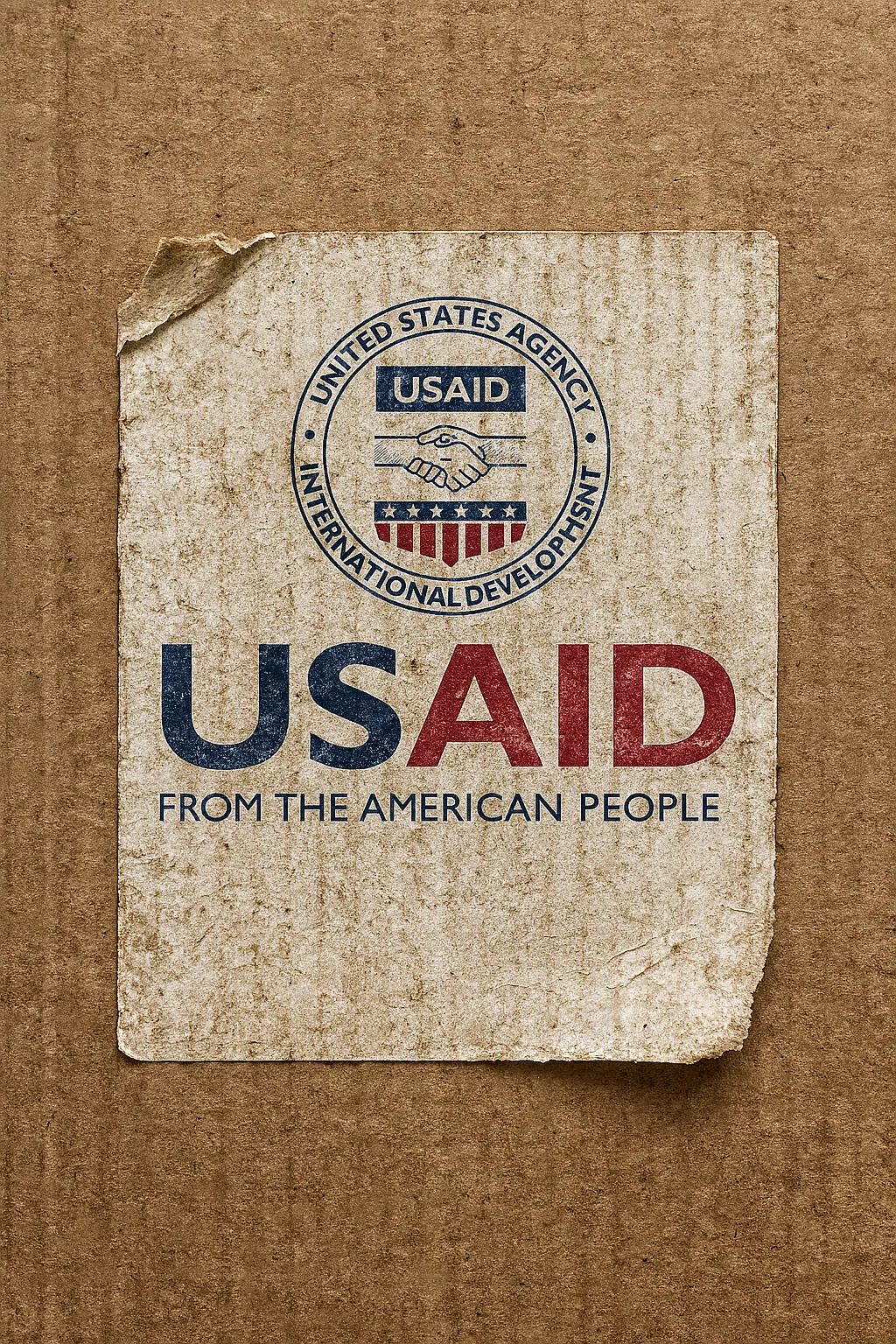
Menu

think tank
If you are interested in submitting an op-ed, policy brief, or research report to our think tank, please contact thinktank@a4al.org.
Sort By:
New - Old

Deep Dive Analysis
When Countries Refuse Development Assistance
Jeffrey Cochrane
Dec 25, 2025

Policy Brief
New U.S. National Security Strategy Flies in Face of Global Development Realities
Jared O. Bell
Dec 9, 2025

Op-Ed
Squanto and USAID: An American Thanksgiving Tragedy
Alliance 4 American Leadership
Nov 25, 2025

Op-Ed
The Case We Forgot To Make
Luke Zahner
Nov 24, 2025

Op-Ed
The Golden Hour in Syria and the Need for U.S. Foreign Assistance
Erin Wroblewski and Mark Kelly
Nov 13, 2025

Op-Ed
Kenya’s Debt Crisis is Eroding Trust in Democracy, and Why Foreign Aid Still Matters
Zan Hussain
Oct 27, 2025

Op-Ed
A Game Theory Perspective on U.S. Foreign Aid
Lawrence R. Kunkel
Oct 20, 2025

Op-Ed
The Strategic Aid Pivot: Moving from Wilsonian Idealism to the Strategic Investment Framework
By Maj Gen Samuel C. Mahaney, USAF (Retired)
Oct 20, 2025

Op-Ed
Rebuilding America’s Strategic Edge: A Framework to Transform Foreign Aid into Strategic Investment
Maj Gen Samuel C. Mahaney, USAF (Retired)
Oct 20, 2025

Policy Brief
Up to 750,000 Federal Employees Furloughed; Rescission of International Assistance Deepens Global Power Vacuum
Alliance 4 American Leadership
Oct 11, 2025

Op-Ed
More Than Meals: How Cuts to Food and Agriculture Programs in Latin America Undermine U.S. Policy
[Cecily Fasanella](http://linkedin.com/in/cecilyfasanella)
Sep 11, 2025

Policy Brief
Human Rights and Democratization Are Foreign Aid Done Right. Don’t Cut Them Now.
[Jared O. Bell](http://linkedin.com/in/jared-bell-phd)
Aug 21, 2025

Policy Brief
Poland on the Edge: Migration, Belarus, and U.S. Policy Opportunity
[Tyler Dávila](http://linkedin.com/in/tyler-davila)
Aug 7, 2025

Op-Ed
The Importance of Localizing Future Foreign Assistance
Meriel Hahn
Jul 4, 2025

Policy Brief
Proposed Cuts to PEPFAR Threaten U.S. National Security
[Danny Suarez](http://linkedin.com/in/suarezmiami)
Jul 4, 2025

Op-Ed
Foreign Aid, Global Health, and U.S. Security: A Strategic Imperative for America
Mark D. Miller, DNP, APRN, AGACNP-BC
Jul 1, 2025

Policy Brief
Rebuilding from the Ground Up: U.S. Strategy for Tunisia’s Local Governance Reform
[Tyler Dávila](http://linkedin.com/in/tyler-davila)
Jun 16, 2025

Op-Ed
The Consequences of Abandoning U.S. Foreign Aid: Nepal’s Dilemma Between the MCC and Chinese Influence
Sam Acharya
May 6, 2025
Sort By:
New - Old

Deep Dive Analysis
When Countries Refuse Development Assistance
In the short run, not everybody wins, and sometimes the losers are powerful.
Dec 25, 2025

Policy Brief
New U.S. National Security Strategy Flies in Face of Global Development Realities
New U.S. strategy document bids farewell to democracy, human rights, and global economic development as organizing principles for foreign policy.
Dec 9, 2025

Op-Ed
Squanto and USAID: An American Thanksgiving Tragedy
Nov 25, 2025

Op-Ed
The Case We Forgot To Make
How We Took For Granted Americans’ Support for Foreign Assistance…and How to Start Winning It Back
Nov 24, 2025

Op-Ed
The Golden Hour in Syria and the Need for U.S. Foreign Assistance
The authors are former employees of the United States Agency for International Development who supported the USAID portfolio of assistance in Syria.
Nov 13, 2025

Op-Ed
Kenya’s Debt Crisis is Eroding Trust in Democracy, and Why Foreign Aid Still Matters
Foreign aid still matters—not as a charity, but as a stabilizing force for governance itself. Properly targeted assistance can act as a democratic buffer when fiscal collapse threatens civic trust.
Oct 27, 2025

Op-Ed
A Game Theory Perspective on U.S. Foreign Aid
Foreign aid has often been debated as either an altruistic transfer of resources or a strategic geopolitical policy tool. From a game-theoretic perspective, it functions more as a calculated move in a dynamic, multiplayer game than as magnanimous financial assistance. States interact in repeated rounds of cooperation, competition, and signaling, where aid becomes a strategy to maximize long-term payoffs. This essay examines the benefits of U.S. foreign aid to developing and less developed countries using game-theoretic reasoning, illustrated with a dynamic game tree.
Oct 20, 2025

Op-Ed
The Strategic Aid Pivot: Moving from Wilsonian Idealism to the Strategic Investment Framework
Oct 20, 2025

Op-Ed
Rebuilding America’s Strategic Edge: A Framework to Transform Foreign Aid into Strategic Investment
Oct 20, 2025

Policy Brief
Up to 750,000 Federal Employees Furloughed; Rescission of International Assistance Deepens Global Power Vacuum
The government shutdown is devastating the U.S. government's workforce and weakening already badly damaged foreign partnerships.
Oct 11, 2025

Op-Ed
More Than Meals: How Cuts to Food and Agriculture Programs in Latin America Undermine U.S. Policy
The state of food aid and agricultural development support in the region.
Sep 11, 2025

Policy Brief
Human Rights and Democratization Are Foreign Aid Done Right. Don’t Cut Them Now.
Well-executed foreign aid that promotes stability, good governance, and human rights is a vital tool of U.S. security and diplomacy. Current and proposed cuts risk undermining global development and the United States' leadership abroad.
Aug 21, 2025

Policy Brief
Poland on the Edge: Migration, Belarus, and U.S. Policy Opportunity
The absence of U.S. foreign aid places Poland at a critical crossroads, where U.S. re-engagement could reaffirm American leadership in democratic development.
Aug 7, 2025

Op-Ed
The Importance of Localizing Future Foreign Assistance
The withdrawal of $8.3 billion in U.S. foreign assistance funding has left nonprofits and government contractors scrambling to sustain the progress they once facilitated.
Jul 4, 2025

Policy Brief
Proposed Cuts to PEPFAR Threaten U.S. National Security
In an era of great power competition and emerging global threats, reducing PEPFAR is a strategic blunder that weakens America's position precisely when strength matters most.
Jul 4, 2025

Op-Ed
Foreign Aid, Global Health, and U.S. Security: A Strategic Imperative for America
Foreign aid, particularly global health assistance, is not a charitable endeavor—it is a strategic investment in the well-being, stability, and security of the United States.
Jul 1, 2025

Policy Brief
Rebuilding from the Ground Up: U.S. Strategy for Tunisia’s Local Governance Reform
Despite more than $335 million in U.S. investment over the past decade, Tunisians continue to report deep distrust in their local government, reflecting a broader erosion of democratic legitimacy across the country.
Jun 16, 2025

Op-Ed
The Consequences of Abandoning U.S. Foreign Aid: Nepal’s Dilemma Between the MCC and Chinese Influence
What once represented a transformative opportunity for Nepal’s economy and a landmark achievement in U.S. foreign policy now hangs in limbo.
May 6, 2025
be the voice congress cant ignore
We are on track to mobilize 10,000 advocates by the 2026 midterm elections to fight for American leadership. Will you join the fight?
be the voice congress cant ignore
We are on track to mobilize 10,000 advocates by the 2026 midterm elections to fight for American leadership. Will you join the fight?

Paid for by Alliance 4 American Leadership and not authorized by any candidate or candidate's committee.
5185 MacArthur Blvd NW, Suite 403, Washington, DC 20016
Think Tank: thinktank@a4al.org
General: govrelations@a4al.org
Media: presssecretary@a4al.org

Paid for by Alliance 4 American Leadership and not authorized by any candidate or candidate's committee.
5185 MacArthur Blvd NW, Suite 403, Washington, DC 20016
Think Tank: thinktank@a4al.org
General: govrelations@a4al.org
Media: presssecretary@a4al.org
